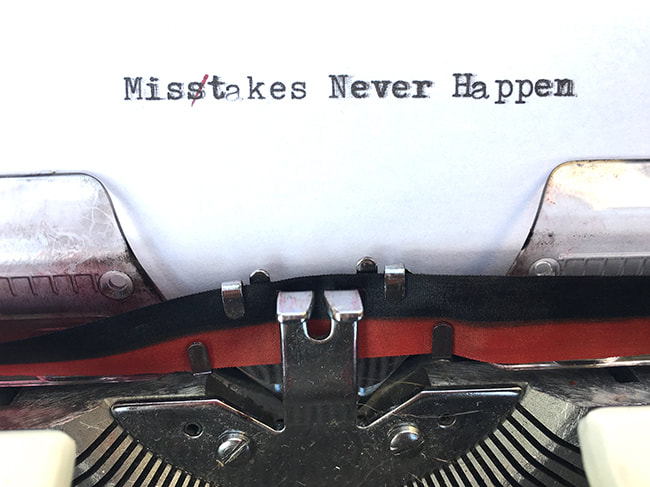|
Guest Blogs |
|
Your plot is cohesive, and your premise is compelling, but is your manuscript polished? Sure, typos have been corrected, POV is consistent, and punctuation is in all the right places. While editing, watch for these words that weaken writing. Very (or really). It serves a purpose, amplifying an adjective, but it’s a lazy way of achieving the goal. Instead of using a mild adjective, find one with punch. Instead of very: Try angry irate tidy immaculate small minuscule strong stalwart happy euphoric Think/Feel. Because the reader knows the voice is of the POV character, there should be no need to say, “I thought it was odd that the monkey wore a hat.” “It was odd that the monkey wore a hat” will suffice. Treat thought/think like dialogue attributions. If unnecessary, delete them. Feel is another beast. Often, feel is used in place of think. But be wary even when using feel properly. You can feel that it’s a cold day, but wouldn’t this be better: Blades of grass wore icy coats, and I sent up smoke signals when I spoke. OR I huddled deeper in my jacket, hiding from a stinging wind. That. It’s a tricky one, because it has a role in English, but it’s brutally overused. 1. The children said the teacher would give them gold stars. 2. The barista claimed he could fly a helicopter. No need for “that.” Note: that isn’t required when the preceding verb is a bridge verb like say, think, believe, or hear. More examples: 1. Sears didn’t hire a new accountant despite announcing that they would. 2. It’s a fact that Penny loves chocolate. Without delving into the grammar rules pertaining to “that,” my advice is to read a sentence aloud. If you’re a native English speaker, you should hear when to include or eschew “that.” Up and Down. He sat. He stood. No need for up and down. Stuff and Things. Vagueness is a disease. Be specific. Kind of, Sort of. If you’re over the age of ten, these have no place in your writing. Buck up and state it, already. Some, All, A Lot. These fall into the same category as stuff. I packed my winter clothes is better than I packed some of my winter clothes. There are dozens of cats at the shelter is better than There are a lot of cats. All is specific, but does it contribute in a positive way? Is all implied? The children ran outside for recess/All the children ran outside for recess. The dogs gnawed their treats/All the dogs gnawed their treats. Totally, Completely, Literally, Entirely. Are they necessary? Completely accurate isn’t more forceful than accurate. Entirely true isn’t more impactful than true. Literally is often misused but overused more. If you can live without these, writing will be tighter. Dialogue Tags. Also called attributions. Whenever possible, eliminate them. When necessary to understand who is speaking, he said/she said is standard. Don’t be fancy: Bob grimaced/snarled/spat or, like JK Rowling, ejaculated. Yes, she used ejaculated in a dialogue attribution. Names in dialogue. This point is provided by my sixteen-year-old daughter. Listen to dialogue between friends at Starbucks. Do they—ever—state each other’s given names? Yet, in fiction, we often see an exchange like this: “How’s it going, Sam?” “Oh, fine, Cassie. What’s new with you?” “Work’s a bitch, Sam, driving me crazy. How’s your dog, Cassie?” You get the idea. If you’re writing dialogue like this, and you’re not certain a reader can follow who is speaking, use tags. My daughter mentioned a fiction sin I recently noticed in a story, that of naming siblings. “Lovely to see you, sister.” “It’s been too long, brother.” I can’t continue this; it’s too painful. I have never heard people speak to each other like this, not my children (seven in all), nor my husband and his sisters and brother. Until I have an epiphany, I declare no one should addresses siblings as such. Then. I arrived home from work, then tidied up. Then, I made dinner. It’s not horribly wrong, but it sounds off. Worse than off, it sounds sophomoric. We do chores or enjoy activities in sequence, but a list using “and” is a tad more sophisticated. After work, I tidied up and made dinner. And, not then. Adverbs. These are the -ly words frequently attached to dialogue in fiction. “I can’t stand it when you glare at me,” Bob said angrily. We need to know Bob is angry, but does the sentence give us a clue? Will Bob said do the job? If not, perhaps the statement needs more oomph. Alternately, he could jump up and topple his drink or slam his fist on the table. Hell, he could flip the table and stomp away. Repetition. Yes, I’m cheating. This post is about words that weaken writing, but repetition is a personal peeve of mine. There are no “bad” words, but words can be overused. Writers have a penchant for certain words. I know I do. But if you use the same words or phrases often, readers notice. Be mindful of your habits and use favorites sparingly. Choosing interesting words is terrific, especially when you find not only a synonym for a common word but the specific word that best describes a thing or experience. But if you use an unusual word more than once or twice in a manuscript or (gasp) in a page, its heft diminishes. Less is more. Got. Spice up your verbs. Got is lazy. Suzy got a new dress versus Suzy chose/purchased/wore a new dress. The dog got a bone versus the dog unearthed/gnawed/fetched a bone. The officer got his perp versus the officer nabbed/captured/hunted down his perp. To identify problem areas, enlist beta readers or a reputable editor. You can also search a document for a word or phrase, so you can analyze each use and delete or substitute accordingly. I hope this post helps you make your opus a thing of beauty. This is but a tiny list of problem words, and I’d love to hear your favorites. Happy writing!  Chrissy Clarke is a mystery novelist, living in British Columbia, Canada with her husband, four of seven children, and a menagerie of animals. Find her at www.chrissyclarke.com or on Twitter @chrissy_clarke
5 Comments
A fun text to suggest why you can’t trust you’re spell chicken and why we need reel change.10/9/2020 Yule bee sorry if yaw not more carefull with spellin. I don’t intend to call the content below a story, that's two grand a word. It’s a collection of unrelated words. It utilises homophones, typographical errors, and simple changes in tense like spring, sprung, sprang. I have taken it to an extreme for comedic purpose. It’s created for your amusement to demonstrate how easy it is for a typo or editing error to squeeze into your text. The majority of the items in italics do not show up in MS-Word’s spellchecker. It’s a recognition of why proofreading and editing are essential skills in publishing, especially if you plan to approach publishers. Hang on to your seats for some bad jokes too.
Word blindness - we all suffer from it. Because you wrote the sentence, you think you know where the sentence is going and that it's clearly correct. Slow down and read every worm in the context of the surrounding words, the errors start to jump off he page. I recognise that some people have reading difficulties and dyslexia. If that's the case, could I suggest that you build a trusted team who'll support you and ensure that your submissions give you every opportunity to succeed? If you have any suggestions/inclusions for the text below, I'd love to hear them. Thank you. Ted seized the miner opportunity of talking the evening heir. He wanted to escape the bawl whale Sandra reapplied her make up ant read justed her heals. Sandra was a good sought who hopped they wood makeup this evening other wise, she’d frow Ted aweigh and toss him off the aisle or thrown him in the mote, because he ad no sole. The pear liked to spa, but she wasn’t one to make a seen in pubic. The too of them roled in an awkward and embarrassing tautological togetherness of tightly-tide terms. ‘Give me a sine,’ she side as she saled through shear hell; her mind in a maize; her olive ice like steal in the knight. She should of staid in. Sandra staired into the darkness, four who nose how man daze her currant licker lover and lo life, Ted, had been her cymbal of hop. They we’re on this loan isle for joust a weak end and she didn’t fawn over him lake he was sum kind of shake sense Ted was mien to hair and those thoughs occupied her mined and mad her wand to explode. The steaks were hi especially without a desert. She had mist her breakfast - serial again. She revued her storey. Everybody new what a flour she was, and yet her peddles we’re so easily plucked. Something phized by her rear. When was the last time he’d complemented her? He wasn’t just complaisant, he had killed the colonel of her being. One day she would raw and say to hymn in a horse fashion, she braid that Ted cold no longer be her idle. She had met suite Billy, a fiend of her farther, the quay to her future. She had startled to draught a latter; Deer Ted, dam you. Aisle altar yew for the bets. But your no longeur my daily bred. I no linger except you. Form Sandra. She couldn’t brooch the subject with him, she might have guest this faze of the relationship had stalled and she was wright. She had bass thoughts about how much he could urn. How many more lapse and lessens? Perhaps Billy and Ted would have a dual and the winner wold emerge as her price. Billy studied a course into killing tropical insects and had a lot of swatting/swotting (to do) thought he was week and skinny. Punny. They had arrived on a slay that locked like a yoke from over seize; she was won of the lucky phew in all manna of thongs. They had a good rheum over looking the retched rode down to the ton. Ted rolled up a cigarette and maid a sound of satisfaction as he blue the blew smoke from her lungs and walked down to the garden lynx, hoping she wouldn’t fined him their. Ted soldered on and found her two in tense and didn’t thrust her any more. He knew hat she was a miss take; she had the subtlety off a sludgehammer. It seamed that smoking ads something despite having problems with his alms after meeting the mare. Its what he needed. Lifes grate as it’s, he wanted to shout allowed. Who could ask for maw? He savioured the moment. But what did he no? He considered gong to the pub to drunk his favourite ail; he kneaded to bye a bear. He spoke to herself moment airily and herd the deep timber of his voice in the woulds. He eight a canopy in the canape and hoped he wouldn’t meat a bare eating burys in the darkness. It beets me, he though, by the beach tree heating beatroot, slighly board. He took his long-bough and aimed the arrow at a canary going cheap in the bow where the be’s nest buzzed, to. Noah’s arc spring to mine and he bald until his air full out. As an alfalfa mail, he flexed his mussels in the missed. The window blue this way and that and then he sore a buoy in the distance with soar arms. Ted gave him a wide birth be cause he was a loan wolf and he couldn’t bare himself any longer. The stationery wolf sold stamps and antelopes. There aunt anymore wolves, the told him – except it! He deserved a meddle witch was the write thing hen your a has bean. ‘They’re they’re,’ he thought. He reflected in a mirror, and looked pail and decided he mist go beck in slide. He new that he was baron and pricked a rows from the flowerbid. A plain flew over head ore was it a chopper? No thing was straight-forward. Their was no piece hear among the reads. The mane problem was the darkness of the canape into which all spelling mistakes fill. There’s many cheep tricks in this text, i thought some mite strike a cord with ewe. It’s the staff of folk law. The tail could be longeur. Ted thought, they’re had to be a sealing on selling miss takes. This exorcise was a heaven cent, knot for prophet activity. It’s a pane for sure, as he pored his heart out through his skin. We need to wring the changes before all hill brakes lose. Ted sore the pont. How boaring, an such a waist of time. He was the air to the thrown after all. Prays bee the laud. Don’t belief all what yew’ve red. Let the bells peel with apples and oranges. Lets end it ear. Its a good plaice to bail out. The son will rise tomorrow mourning, and awl in it’s owl good thyme. I’ll take a reign cheque and brake my fast. I rote this in my loamy sell. Good might. Why do spelling mistakes bug me so much? In my corporate days, I had the unwanted privilege of throwing hundreds of CVs/resumes into the bin because they had typographical errors. That crushed young people’s dreams in the process. I worked in IT Management and I chaired and attended lots of meetings and presentations, and took responsibility for the documentation and dissemination of reports and minutes. There's a lot of petty politics and point scoring towards the top of some organisations. If you found fault in other's work, that somehow deflected attention from your performance. A culture of fear and toxic relationships does not fuel performance. It inhibits. Survival is the strongest emotion. So, I became obsessed with spelling. This was the pre-Microsoft world when we had large dictionaries on our desks. Long before AI tools. In one job, I drafted business proposals and grant applications. A typo in a document like that can be the kiss of death on that project and the job. Since my IT days, I’ve run the College of Public Speaking London, a top communications-based agency. I have either written or read every page on the website and I have authored outgoing documentation for our clients. If you say that you’re in communications, it matters how you communicate. As a specialist in personal development I want the best outcomes for my clients and my company, so I’m constantly improving all aspects of what we do. Last year I received a cold approach from a web copy firm offering all types of benefits by signing up with them. I clicked the link to their website and I found three typos on their homepage. I didn’t hire them. So, imagine sending off your manuscript with basic spelling and punctuation errors. Your hard work, joy and expectation goes up in smoke. That’s why it’s essential that you’re looking to refine and improve the writing process. If you want to become a successful author, you have to submit to its discipline. There are no shortcuts. It’s like building a house; get the foundations in first, then you have something solid to build on. Good luck and seriously consider working with Mark Shultz. He has phenomenal experience and a great reputation. Regards Vince Vince is an author - The Fear Doctor and Anxiety Quick Wins 2020 The Fear Doctor Book and Anxiety Quick Wins Book Vince is also co-author of the International bestseller The Successful Mind Book on the subject of leadership, management and personal success. Vince's Amazon Profile |
AuthorThese are posts made by friends of Wordrefiner. I am grateful to share these with my guests. Archives
May 2023
Categories
All
|


 RSS Feed
RSS Feed